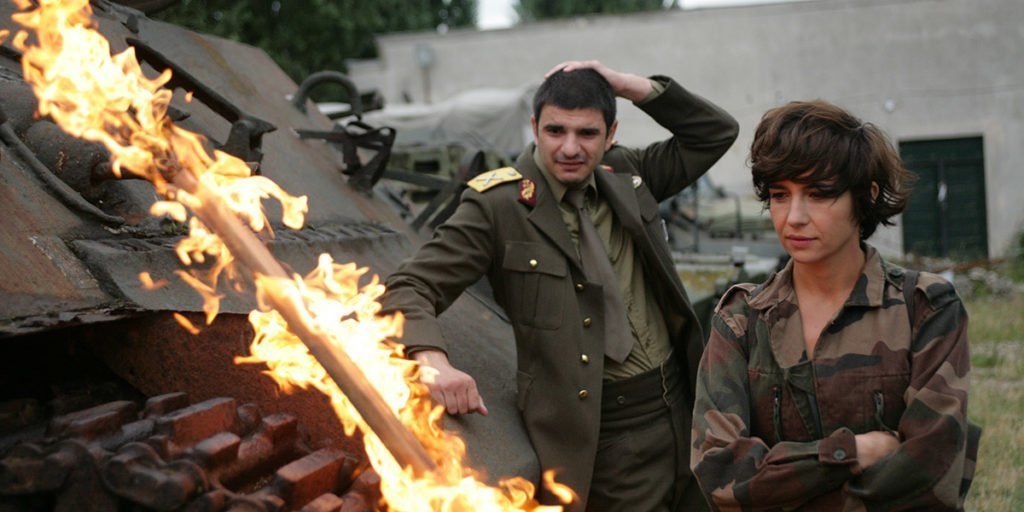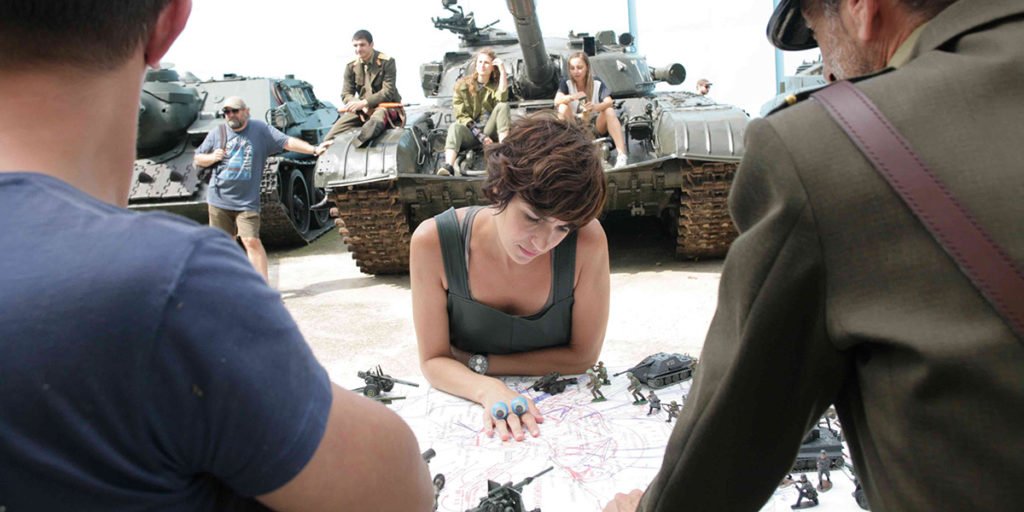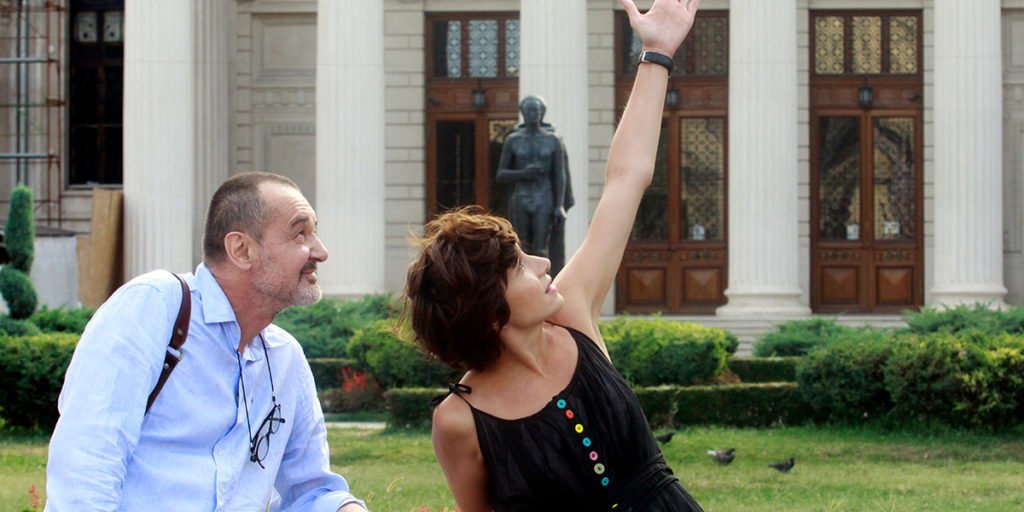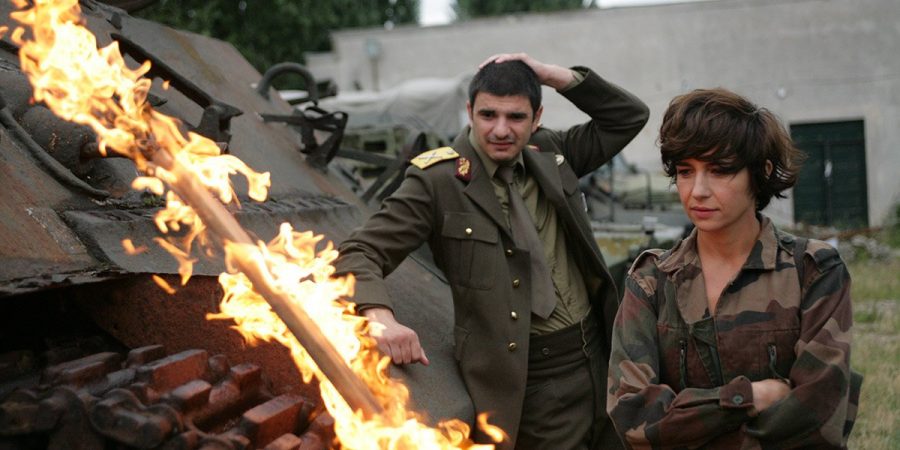“I do not care if we go down in history as barbarians.”
With the aim to initiate ethnic cleansing on the eastern front, Ion Antonescu made that statement in the 1941 Romanian council of ministers and began what went on to become the greatest horror event of the 20th century, the killing of Jews and, what we may call, a precursor to Holocaust. In Barbarians, Radu Jude, a Romanian himself, has attempted to comment on the statement and in the wake of making this film, he discovers much more about the country than he probably anticipated.
Radu Jude’s Barbarians has a meta-narrative in which a theater director, Mariana Marin (Ioana Iocab) is staging a show about the Odessa massacre led by Ion Antonescu, wanting to reenact controversial details. The subject is relentlessly inviting her hostility from every nook and corner. By going meta, Radu Jude tells a true story in the backdrop of contemporary fiction. This also helps him clear off of any immediate backlash and eases up the controversy.

The days of preparation prior to the show turns out to be a mass character study of the local Romanians. While hiring extras to play German, Russian and Romanian Soldiers, people came up with all kinds of prejudice. Some had reservations against playing a German soldier, while others didn’t want to work with Roma Gypsies. We see a certain ignorance among the Romanians as they have turned a blind eye to their own history and atrocities, which accounts for the false sense of nationalism they carry on their sleeves. Every now and then, there would be someone saying that the project is very anti-Romanian.
Barbarians is also about the struggle of an artist when she is out to tell a controversial story that may shake up national integrity and destroy shallow nationalism. The struggle is reflected through Mr. Movilă, a censor chief who is interfering with the creative processes and is trying really hard to convince Mariana to drop the show. He suggests her to make a show about soldiers, their sacrifices, about the ‘decoration’ of nationalism. In one of the several persuasions of Movilă, he mentions Schindler’s List and how Steven Spielberg ‘swam’ in Oscars by making a film about a good German who saved Jews, to which Mariana mockingly says that Spielberg can go make Jurassic Park -5, for all she cares. The film subtly makes fun of America and American Cinema here and there. Early in the film, we learn about a uniform being used in an American film called ‘Zombies vs Wehrmacht’, teasing Hollywood’s obsession with Zombies and films like that.

I especially admired the film for Radu Jude’s decision to have a female lead to play the director. This gave him space to explore the attitude of the people in Romania towards a woman with a certain authority, even in these modern times. Ioana Iocab is brilliant as Mariana, apart from the hostility she receives during the making of the show, she has struggles to deal with in her personal lives too. With an unplanned pregnancy with her married boyfriend, we witness her in her most vulnerable private moments, we see insecurities she doesn’t show otherwise. When she is not alone, Mariana is almost acting as an authority, a fierce woman who is clear in her head about what she wants to do.
There are several moments of feminist-ic glory when we see Mariana confronting the direct/indirect sexism coming her way. In one of the scenes, an extra complains about how the show doesn’t have enough extreme realism, which leads to an argument and Mariana gives a funny example of the TV Idiots who imitate Hemingway by growing a beard and acquire drinking but not the writing. There is a certain intellectualism in her that sets Mariana apart from the clan she deals with. On the other hand, her confrontations with Mr. Movilă are filled with significant historical references, even if his arguments are usually that of a negationist when he mentions other massacres in history to cover up their own. Nonetheless, his counter-arguments suggest that he, too, is an intellectual like Mariana. Their argument, even though never comes to a solution has an indulgence and exchanges a good dose of intellect.

The Camera lingers seamlessly in Radu Jude’s Barbarians. There are often random 10 seconds long shots of abstract objects like the iron bar when Mariana asks Movilă to imagine people hanging by it in the middle of an argument. On multiple occasions, there are long shots of Mariana in the bathtub or by her study, contemplating. There are little moments where Jude leaves us with a frame for a good 10-15 seconds, allowing us to understand the seriousness of the subject.
In a shocking scene at the end, we see an actor who was playing a Jew run away in discomfort, but the Romanian crowd catches him in frenzy and throws him back to the play as if they are contributing atrociously in a real massacre. Barbarians’ finale compensates for every little moment, where the film has dragged a bit or repeated itself. Jude’s film or rather Mariana’s is unapologetic when it stages the truth and strips down the shallow pride of a nation by lighting a house full of lies and ignorance on fire. It critiques, but it’s a critique of pure reason.


